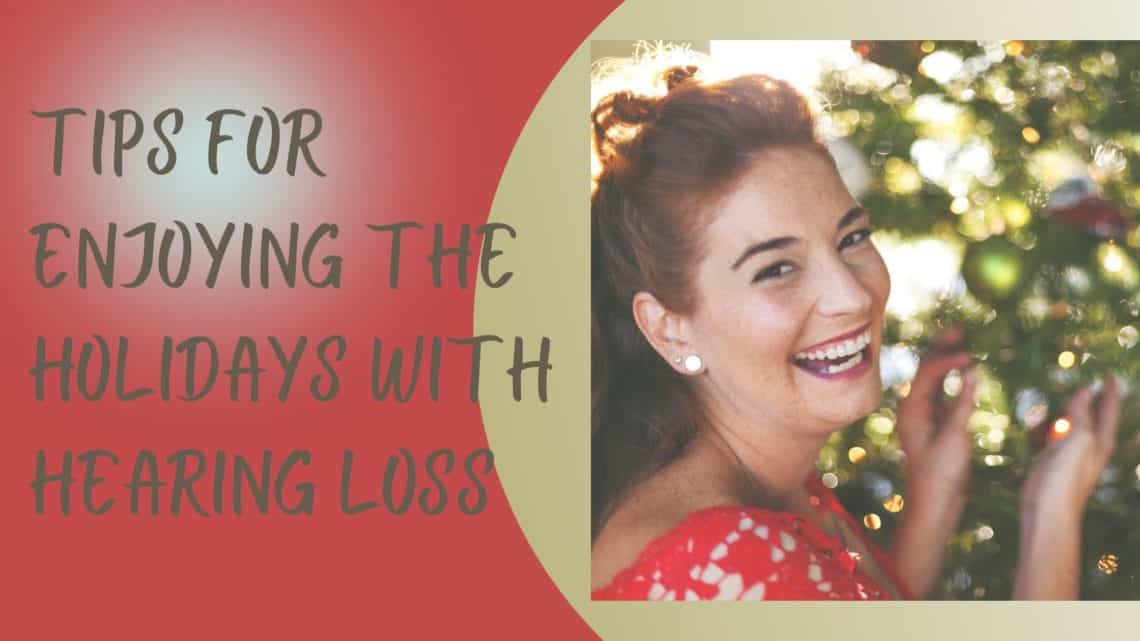The holiday season is an exciting time filled with celebrations and gatherings with family and friends. Spending time with loved ones and catching up is a joyous time for connection. The holidays can also create specific challenges for people with hearing loss. Navigating social spaces and conversations with multiple people is more difficult with a hearing impairment. But there are useful ways you can maximize your hearing capacity to fully enjoy the holidays.
Check Your Hearing This Holiday Season
It is important to stay up to date with your hearing needs. Your hearing loss can change over time which is why having your hearing assessed regularly is helpful. Experts recommend doing this annually – incorporating hearing tests into other routine health checks. Be sure to have your hearing tested before the holidays. This allows you to know if you’ve experienced any changes that need to be addressed. Hearing health changes could require updated treatment to ensure that your needs are being met. This could include needing new hearing aids or needing to update your device. Checking in with your hearing healthcare provider allows you to ensure that your treatment is up to date. You can also have your device professionally cleaned which supports optimal use.
Pay Attention to Background Noise
The holidays often involve gatherings, big and small, with several people. This could include festive music and increased sound from multiple conversations. This background noise can be especially challenging for people with hearing loss. Background noise provides competing sounds that the brain has to also process. Trying to process this noise as well as sound from the conversation you are having often requires extra energy and labor for the brain. This can lead to cognitive overload and produce fatigue. Avoid this by asking the host to reduce unnecessary sources of background noise – television, music, kitchen appliances, etc.
Sit Strategically
Thinking through seating arrangements is another helpful way to support your hearing. The holidays often involve dinners with several people sitting at the table. You want to sit strategically so that you can see most, if not all, people which gives you visual access. Being able to see who is speaking is a helpful way to follow a conversation because you can also read nonverbal cues which provide context. Additionally, avoid sitting in noisier spots near any speakers or the kitchen which can be a distraction.
Additionally, identify quiet areas in the environment you are in where you can retreat to have more intimate conversations. Quiet areas are away from music, have fewer people walking by, and have good lighting. These conditions allow you to focus on the conversation and hear with greater ease. This helps you have deeper exchanges without the stress of background noise or other distractions.
Share communication strategies
It is important to share specific ways that people can better support your hearing. Remember that people want you to be able to fully participate and engage in conversation. Sharing simple ways they can maximize your hearing during a conversation significantly strengthens communication. Strategies include:
-
- Grab attention. Ask others to grab your attention, this could be as simple as saying your name or tapping you, before starting a conversation. This allows you to be prepared for the conversation.
- Rephrase rather than repeat. Instead of repeating something that was said, it could be more helpful to paraphrase using new words. When you experience difficulty hearing what some else is saying, it could be that processing that specific sentence or word is challenging. Using different words is a helpful way to communicate the thought.
- Face the speaker. Looking at the person speaking allows you to see their mouth and facial expressions. These are useful ways to better identify words and follow a conversation.
- Speak clearly. Others often assume they simply have to project their voice in order for the person with hearing loss to hear them. But increasing volume can actually further distort sound. People should speak more naturally and clearly.
Advocating for your hearing needs is an important way to prioritize your hearing health. Be sure to ask for clarification, share strategies, ask for the volume to be turned down, etc.
Happy Holidays from Hearing Wellness Solutions
From all of us at Hearing Wellness Solutions, we wish you a wonderful holiday season and a happy, healthy new year. We appreciate the opportunity to support you and your loved ones on the journey to better hearing and look forward to a new year ahead with you!


